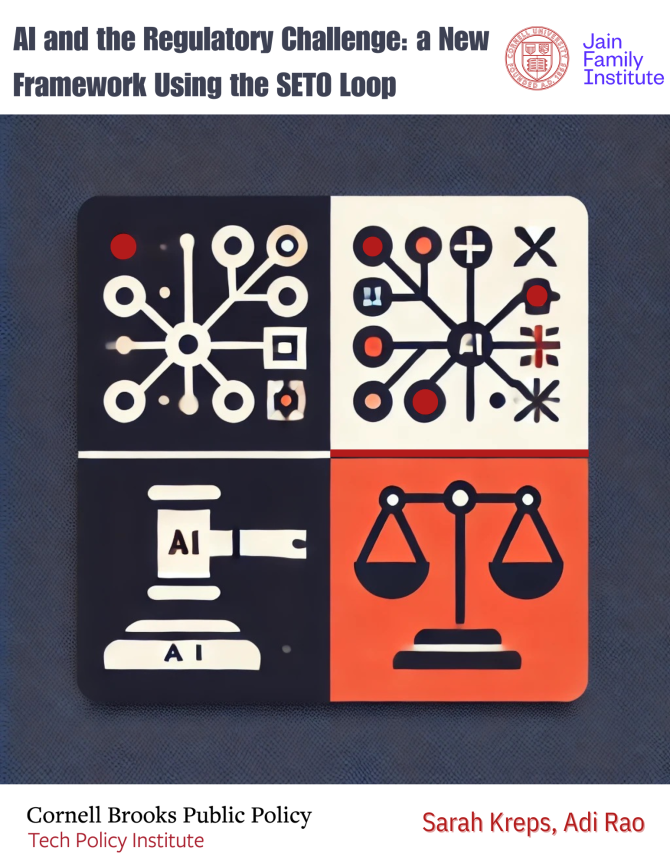
The Brooks Tech Policy Institute, with support from the Jain Family Institute (JFI), has released a new report that offers “a high-level framework to analyze regulation of AI technologies.”
News directly from Cornell's colleges and centers
BTPI releases new report on AI regulation
By Giles Morris
The Brooks Tech Policy Institute, with support from the Jain Family Institute (JFI), has released a new report that offers “a high-level framework to analyze regulation of AI technologies.”
Sarah Kreps– the John L. Wetherill Professor in the Department of Government in the College of Arts & Sciences (A&S), director of the Brooks School Tech Policy Institute and a professor in the Brooks School– and Adi Rao– a doctoral candidate in the Department of Government and an adjunct at the RAND Corporation– worked together to produce the report as part of a unique fellowship designed to encourage faculty/student collaborations in applied research. The fellowships are made possible by support from a collaboration with the Jain Family Institute (JFI), founded by Bobby ’92 and Carola Jain.
“We hope this report will be a useful tool for regulators as they confront the continuously unfolding challenges and possibilities presented by emerging AI technologies,” said Kreps. “We are grateful to JFI for its support and collaboration as we pursue ways to engage our students with purpose-driven research that improves global policy outcomes.”
The JFI-Brooks Fellowships provide two-year funding for Brooks School faculty-student teams to advance research and public engagement on policy questions related to climate change, education, social policy, and digital ethics.
Kreps and Rao studied existing and proposed regulatory schemes governing artificial intelligence in order to develop a new theoretical roadmap for U.S. policymakers as they grapple with the promises and potential perils of generative AI. The report presents a regulatory framework coined “the SETO loop,” which encourages policymakers to engage with complex regulatory challenges by examining the scope of the problem, reviewing existing regulations, selecting the appropriate policy tools, and identifying the organization best positioned to act.
“The fellowship has been a game changer for me as a researcher and really given me the opportunity to apply my experience working with AI technology in the private sector to the pressing challenges facing regulators today,” Rao said.
The full report is available for download here.
Giles Morris is assistant dean for communications in the Cornell Jeb E. Brooks School of Public Policy.
Media Contact
Get Cornell news delivered right to your inbox.
Subscribe



